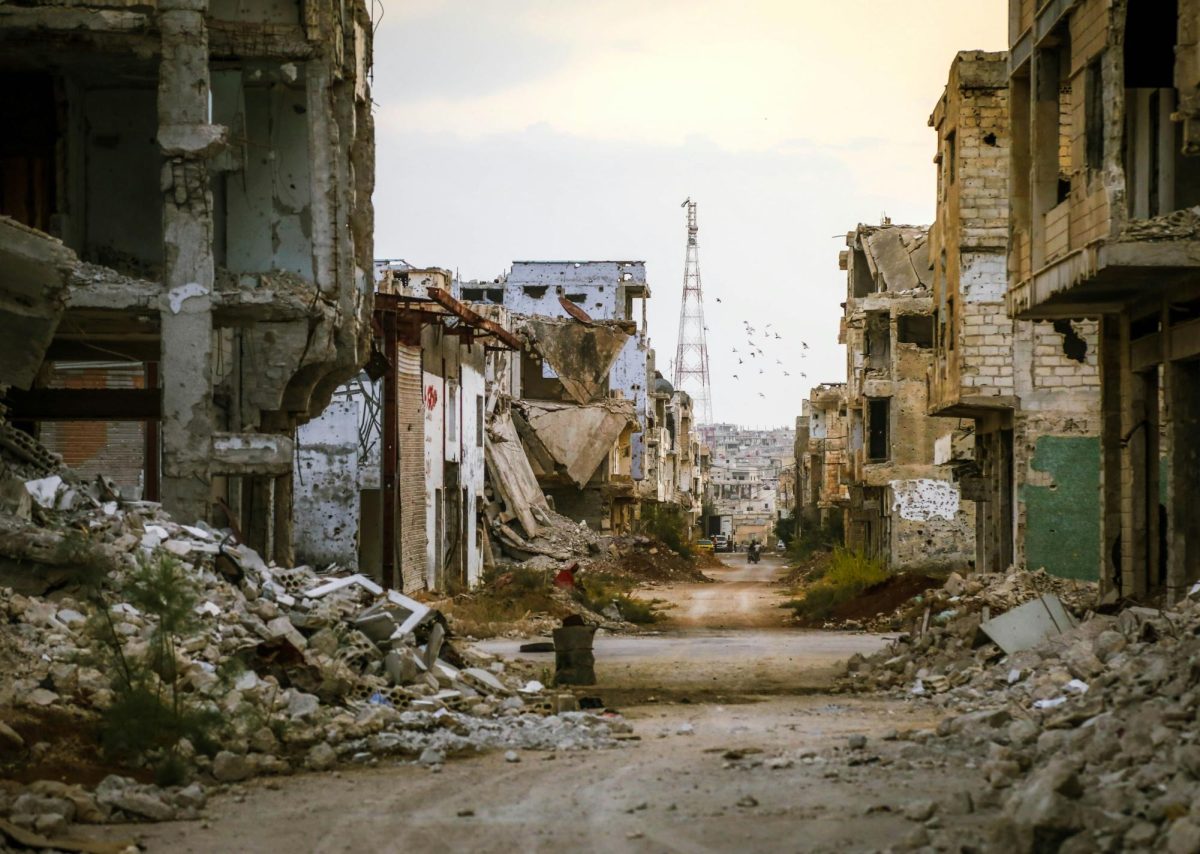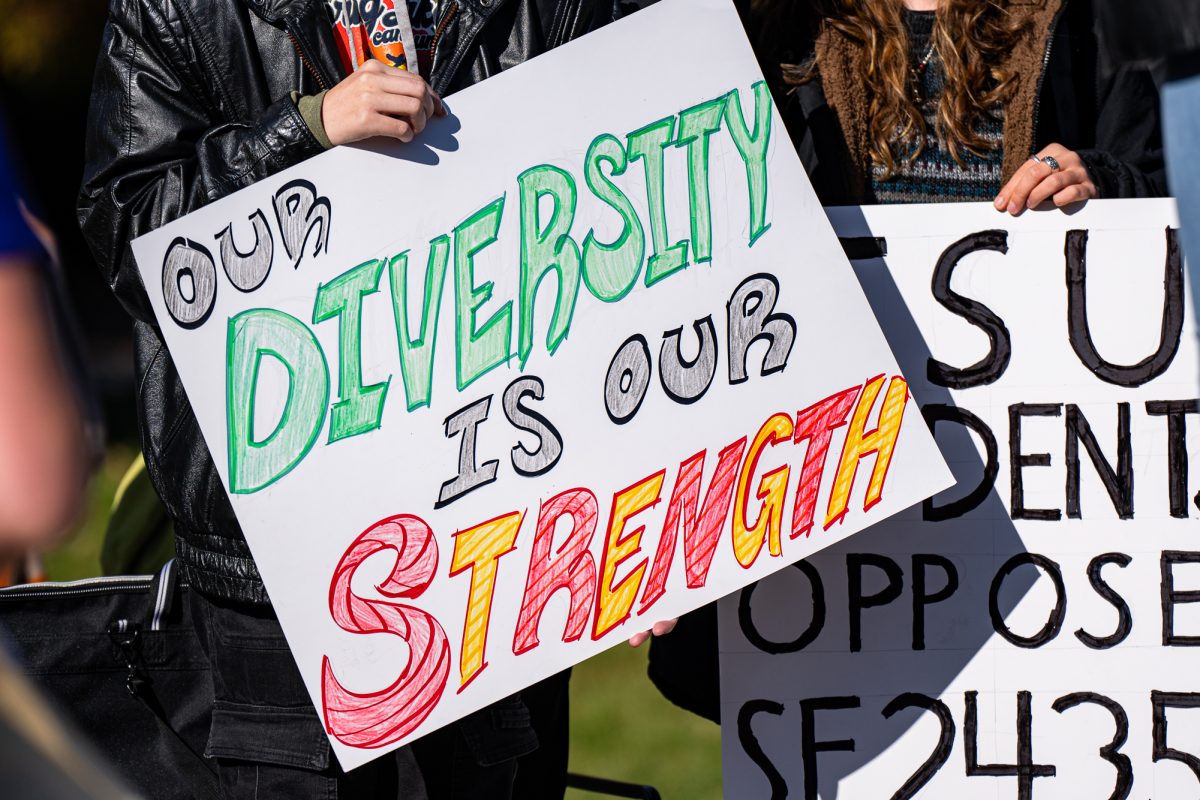Syria is often forgotten in the modern discussions of international politics. Years ago, the Syrian civil war bombarded global news headlines and attracted the eyes of the world to the destructive and horrifying images of dead civilians, women and children terrorized and ancient cities and villages reduced to ruin. Then it faded away from mainstream media, cast aside for apparently more crucial matters that deserved our attention. This was a mistake. Syria and their people need international support and awareness. The civil war never ended, and Syrians are facing unimaginable circumstances.
The Syrian Revolution of 2011 was a part of the wider Arab Spring movement, which resulted in the toppling of governments in Tunisia, Libya, Egypt and Yemen, and inspired minor movements in countries like Algeria, Lebanon and Sudan. In the destitute province of Daraa, the Revolution began as a wave of pro-democracy protests against the iron-fisted rule of Syrian President Bashar al-Assad, a sentiment that quickly spread and circulated throughout the nation. Protesting rapidly devolved into violence, which ultimately unfolded into what is now known as the Syrian Civil War; the conflict we were all glued to for so many years.
Conventional opinion today–indeed for the past few years–is that Assad was successful in crushing his resistance and therefore, as Charles Lister writes, “it is increasingly common to hear the phrase ‘Assad won,’ or ‘the war is coming to an end.’” Lister deftly articulates, however, that this view is naive and fails to provide a meaningful account of the entire situation. After Russian intervention in Syria in 2015, Assad improved his posture, and the international conversation quickly shifted to “calls for the world to accept this new reality,” to “end sanctions” and “help Syria rebuild and restore sovereignty in all corners of the country.”
“There’s just one problem,” Lister writes. “[The] Assad regime has not ‘won’ anything. It has merely survived at the cost of Syrians’ blood and fear; stability remains far out of reach.”
This context is important to understanding the events of the past few weeks.
After launching a major offensive against the Syrian government Nov. 27–in what many perceive to be renewed momentum in light of the “diminished strength” of “Iran-backed groups such as Hezbollah throughout the region”–rebels led by Hayat Tahrir al-Sham (HTS), a regional group “formerly allied with Al-Qaeda,” seized control of Aleppo, Syria’s second-largest city, dealing a major blow to the regime of Bashar al-Assad.
The rebel gains are substantial. After Aleppo, rebel forces wasted little time in advancing and capturing the city of Hama, in which Bashar al-Assad’s father, Hafez al-Assad, unleashed a brutal crackdown against insurgents and innocent civilians in 1982. History does indeed repeat itself.
Now, after establishing control of Hama, “rebel fighters vowed an advance on Homs would come next,” Homs being “a junction leading to the Syrian coast and to Lebanon – areas critical to the government, as well as Iran and Russia, its main allies and military supporters.”
When it comes to matters in the Middle East, foreign powers are invariably involved. As mentioned already, Russia and Iran are aiding the Assad regime in combating the further advancement of rebel groups. Turkey, it is speculated, “may even be the driving force in the recent push” on Syrian government territory.
The DW, quoting a Middle East expert, writes that “not only is there no doubt that Ankara knew about the offensive, it is also giving military assistance. Naturally, the rebels need adequate weaponry.”
Of course, there are also the US-backed Kurdish forces in northeastern Syria, who will undoubtedly play a major role in the course of the conflict. All of this is to say we should be paying more attention to Syria, especially because it impacts the balance of power in the region and the ongoing conflicts in Gaza and Lebanon, which are currently grasping global attention.
More important, however, is the humanitarian cost of a further civil war. The Syrian crisis has already proven to be particularly insidious. According to UNICEF, around 90% “of the families in Syria live in poverty.”
Additionally, almost “7.5 million children in Syria will need humanitarian assistance” because of the “worsening economic crisis, mass displacement, and devastated public infrastructure.”
We, as Americans, should pressure our elected officials to contribute toward peace in the region, even if the chance of policy change in this direction is slim. If global public opinion isn’t effective at directing policy, it is at least helpful in shifting perspective toward how policy and the governments that implement them ought to be perceived (e.g.., Gaza, Lebanon and Ukraine).
As Lina Chawaf writes, “how easily the world forgets and turns its eyes away when another equally gut-wrenching human rights tragedy grabs our attention.” Chawaf is referring to Gaza, not to discount the events taking place there, but to call out our single-mindedness, especially in the West, with our fluctuating sentiments regarding international issues.
In sum, I encourage anyone to read up on this topic and its history. Nothing that is happening in Syria is new, and if people can mobilize effectively, progress can be achieved by preventing further catastrophe in a nation already paralyzed. Syria and its people need it.








